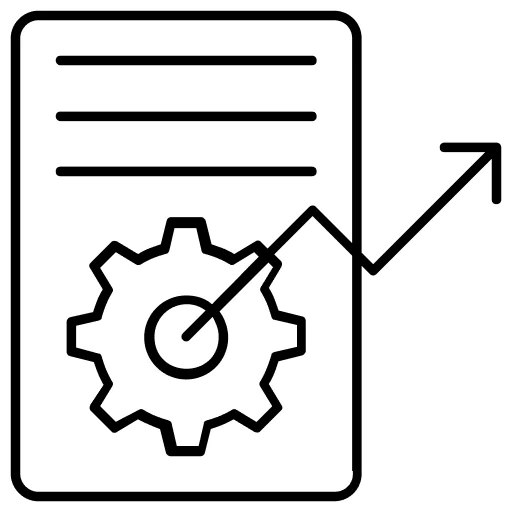Our Comprehensive Technical SEO Services
A technical SEO audit is the first step to identifying any roadblocks that could be hindering your search rankings. We analyze:
Website crawlability – Ensuring search engines can effectively navigate your site.
Page load speed – Faster websites retain users and rank higher.
Broken links & error detection – Fixing 404 errors and redirect issues.
Mobile responsiveness – Ensuring an optimal user experience across devices.
Security issues – Identifying potential vulnerabilities like mixed content and HTTPS errors.
Our detailed audit report provides a prioritized roadmap to fix these issues and improve your site’s SEO performance.
For your website to rank, search engines need to crawl and index your pages properly. We optimize:
- Robots.txt file – To control which pages search engines can and cannot crawl.
- XML sitemap – Ensuring all important pages are discoverable.
- Canonical tags – Preventing duplicate content issues that could hurt rankings.
- Noindex/nofollow tags – Managing which pages should or shouldn’t be indexed.
This ensures search engines index the right content, improving your website’s discoverability.
A slow website negatively impacts rankings and user experience. We optimize:
- Reducing server response time – Ensuring quick content delivery.
- Image compression – Faster loading without sacrificing quality.
- Minifying CSS, JavaScript, and HTML – Eliminating unnecessary code.
- Caching & CDN integration – Serving static content faster to users globally.
A fast-loading website improves engagement and leads to better search engine rankings.
With Google's mobile-first indexing, your website's mobile experience is more important than ever. We ensure:
- Mobile-responsive design – Proper layout, buttons, and text sizing.
- AMP (Accelerated Mobile Pages) – Faster mobile page loading.
- Touch-friendly navigation – Optimizing clickability and usability.
- Viewport optimization – Ensuring your site adjusts to different screen sizes.
This enhances mobile performance, reducing bounce rates and improving rankings.
Structured data (Schema Markup) helps search engines understand your content better, enhancing search results with rich snippets. We implement:
- Product schema – Improving eCommerce visibility.
- FAQ & How-To schema – Enhancing featured snippets.
- Local business schema – Boosting local SEO presence.
- Review schema – Displaying star ratings on search results.
Schema markup improves CTR (Click-Through Rate) and helps your content stand out in search results.
Google prioritizes secure websites in rankings. We implement:
- HTTPS migration – Encrypting site data for better security.
- SSL certificate setup – Ensuring all pages load securely.
- Fixing mixed content issues – Preventing security warnings on browsers.
- Regular security audits – Identifying and mitigating vulnerabilities.
A secure website builds trust with both users and search engines, reducing bounce rates.
Unoptimized images slow down your website. We optimize:
- Image compression – Reducing file size without losing quality.
- Alt-text optimization – Making images discoverable in search results.
- Next-gen formats (WebP, AVIF) – Faster loading images.
- Lazy loading implementation – Loading images only when needed.
This ensures faster page loads and improved rankings, particularly on mobile.
A well-organized website structure improves navigation and SEO performance. We optimize:
- SEO-friendly URLs – Short, keyword-rich, and descriptive URLs.
- Breadcrumb navigation – Enhancing user experience and internal linking.
- Internal linking strategy – Strengthening page authority.
- Fixing orphaned pages – Ensuring all pages are accessible.
A well-structured site improves crawlability and indexing, leading to better search visibility.
Crawl errors and broken links hurt user experience and SEO rankings. We:
- Identify & fix 404 errors – Replacing or redirecting broken pages.
- Proper 301 redirects – Ensuring seamless URL transitions.
- Internal link audit – Removing dead-end links.
- Google Search Console monitoring – Tracking indexing and error reports.
This ensures a smooth browsing experience and prevents loss of rankings due to broken links.
Migrating a website incorrectly can result in massive traffic loss. Our SEO migration services include:
- Comprehensive migration planning – Ensuring a seamless transition.
- URL redirection strategy – Preserving rankings during domain/platform changes.
- Post-migration SEO audit – Fixing indexing and traffic drop issues.
- Preserving SEO equity – Retaining backlinks and rankings.
A well-planned migration strategy prevents ranking drops and ensures continued visibility.
Why Choose DiTech CDM for Technical SEO?

Expert-Led Strategies
Our SEO professionals specialize in fixing technical issues that impact rankings.

Custom Optimization Plans
Every website has unique needs-we tailor Technical SEO solutions accordingly.

Latest Algorithm Compliance
We stay updated with Google's algorithm updates to ensure compliance.

Continuous Monitoring & Support
From initial audits to ongoing fixes, we offer end-to-end SEO support.
Case Studies
Real Results from Our SEO Campaigns
.webp)
E-commerce Success
Increased organic revenue by 270% for an online retail brand through targeted product page SEO.
.webp)
B2B SEO Strategy
Enabled a B2B client to expand their revenue by 187% using content marketing and technical SEO enhancement.
.webp)
Local SEO Growth
An optimized small business website obtained top 3 local rankings which boosted the number of customers visiting the stores and sending business inquiries
Final Thoughts:
Boost Your Website’s SEO with Our Technical SEO Services
A solid Technical SEO infrastructure provides website owners with faster website speed and enhanced rankings combined with better usability experience. DiTech CDM offers Technical SEO Services that fix website problems and improve both search engine visibility and site crawlability.
- 📞 Get in touch today! Let’s fix your website’s technical SEO and drive better results.
